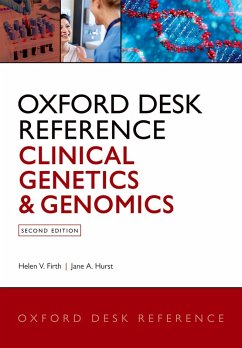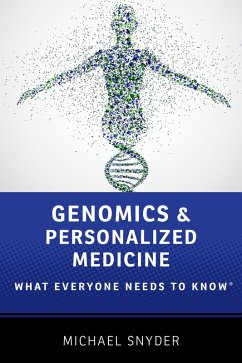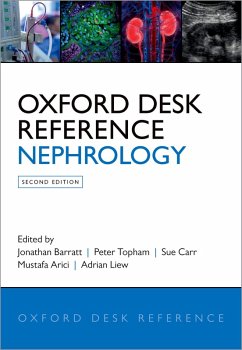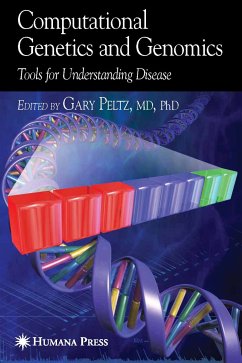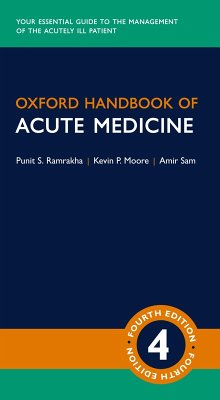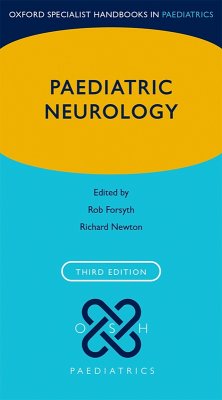
Oxford Desk Reference: Clinical Genetics and Genomics (eBook, PDF)

PAYBACK Punkte
30 °P sammeln!
A popular and easy-to-use guide, this book is a must-have tool for clinical consultations in genetics and genomic medicine. Ideal for quick reference during practice, it covers the process of diagnosis, investigation, management, and counselling for patients. With a strong evidence base and international guidelines, it puts reliable and trustworthy guidance at your fingertips. Designed for use as a first-line guide, the A to Z format ensures it's accessible, and the simple layout makes it easy to assimilate information. Highly illustrated, the book also contains up-to-date glossaries of terms ...
A popular and easy-to-use guide, this book is a must-have tool for clinical consultations in genetics and genomic medicine. Ideal for quick reference during practice, it covers the process of diagnosis, investigation, management, and counselling for patients. With a strong evidence base and international guidelines, it puts reliable and trustworthy guidance at your fingertips. Designed for use as a first-line guide, the A to Z format ensures it's accessible, and the simple layout makes it easy to assimilate information. Highly illustrated, the book also contains up-to-date glossaries of terms used in genetics and dysmorphology providing quick reference for key concepts. The second edition is an eagerly anticipated update of the gold standard in the specialty. It covers new developments in the field, particularly the advent of genome-wide sequencing and major updates in cancer. Fifteen new topics have been added, including Sudden cardiac death, Neonatal screening, and Ciliopathies. The authors have used their experience to devise a practical clinical approach to many common genetic referrals, both outpatient and ward based. The most common Mendelian disorders, chromosomal disorders, congenital anomalies and syndromes are all covered, and where available diagnostic criteria are included. In addition there are chapters on familial cancer and pregnancy-related topics such as fetal anomalies, teratogens, prenatal and pre-implantation diagnosis and non-invasive prenatal testing. The book also provides information on the less common situations where management is particularly complex. Both practical and pertinent, Oxford Desk Reference: Clinical Genetics and Genomics is the companion you need by your side during clinical consultations.
Dieser Download kann aus rechtlichen Gründen nur mit Rechnungsadresse in A, B, BG, CY, CZ, D, DK, EW, E, FIN, F, GR, HR, H, IRL, I, LT, L, LR, M, NL, PL, P, R, S, SLO, SK ausgeliefert werden.




